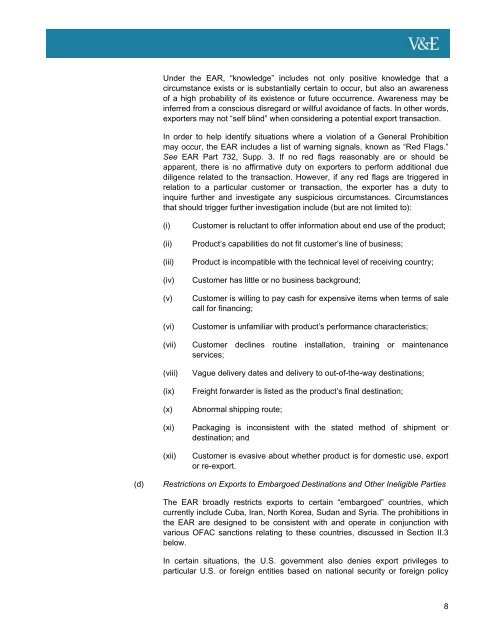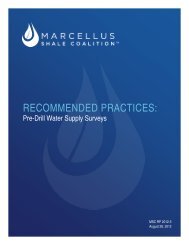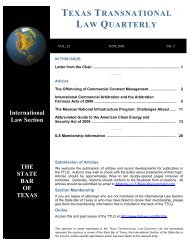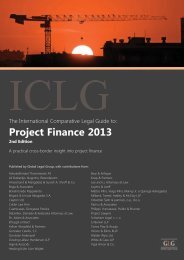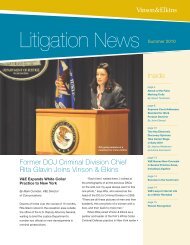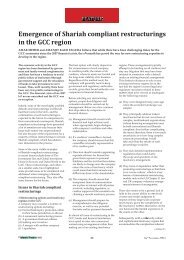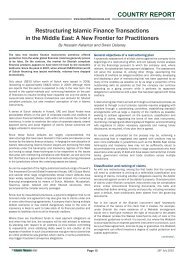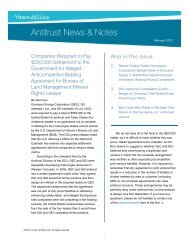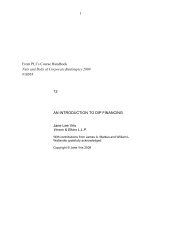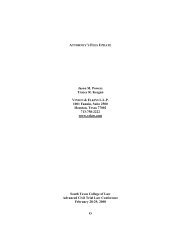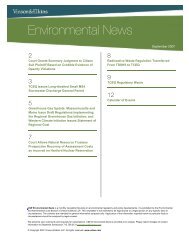Overview of U.S. Export Controls and Sanctions Issues Relating to ...
Overview of U.S. Export Controls and Sanctions Issues Relating to ...
Overview of U.S. Export Controls and Sanctions Issues Relating to ...
You also want an ePaper? Increase the reach of your titles
YUMPU automatically turns print PDFs into web optimized ePapers that Google loves.
Under the EAR, “knowledge” includes not only positive knowledge that a<br />
circumstance exists or is substantially certain <strong>to</strong> occur, but also an awareness<br />
<strong>of</strong> a high probability <strong>of</strong> its existence or future occurrence. Awareness may be<br />
inferred from a conscious disregard or willful avoidance <strong>of</strong> facts. In other words,<br />
exporters may not “self blind” when considering a potential export transaction.<br />
In order <strong>to</strong> help identify situations where a violation <strong>of</strong> a General Prohibition<br />
may occur, the EAR includes a list <strong>of</strong> warning signals, known as “Red Flags.”<br />
See EAR Part 732, Supp. 3. If no red flags reasonably are or should be<br />
apparent, there is no affirmative duty on exporters <strong>to</strong> perform additional due<br />
diligence related <strong>to</strong> the transaction. However, if any red flags are triggered in<br />
relation <strong>to</strong> a particular cus<strong>to</strong>mer or transaction, the exporter has a duty <strong>to</strong><br />
inquire further <strong>and</strong> investigate any suspicious circumstances. Circumstances<br />
that should trigger further investigation include (but are not limited <strong>to</strong>):<br />
(i)<br />
(ii)<br />
(iii)<br />
(iv)<br />
(v)<br />
(vi)<br />
(vii)<br />
(viii)<br />
(ix)<br />
(x)<br />
(xi)<br />
(xii)<br />
Cus<strong>to</strong>mer is reluctant <strong>to</strong> <strong>of</strong>fer information about end use <strong>of</strong> the product;<br />
Product’s capabilities do not fit cus<strong>to</strong>mer’s line <strong>of</strong> business;<br />
Product is incompatible with the technical level <strong>of</strong> receiving country;<br />
Cus<strong>to</strong>mer has little or no business background;<br />
Cus<strong>to</strong>mer is willing <strong>to</strong> pay cash for expensive items when terms <strong>of</strong> sale<br />
call for financing;<br />
Cus<strong>to</strong>mer is unfamiliar with product’s performance characteristics;<br />
Cus<strong>to</strong>mer declines routine installation, training or maintenance<br />
services;<br />
Vague delivery dates <strong>and</strong> delivery <strong>to</strong> out-<strong>of</strong>-the-way destinations;<br />
Freight forwarder is listed as the product’s final destination;<br />
Abnormal shipping route;<br />
Packaging is inconsistent with the stated method <strong>of</strong> shipment or<br />
destination; <strong>and</strong><br />
Cus<strong>to</strong>mer is evasive about whether product is for domestic use, export<br />
or re-export.<br />
(d)<br />
Restrictions on <strong>Export</strong>s <strong>to</strong> Embargoed Destinations <strong>and</strong> Other Ineligible Parties<br />
The EAR broadly restricts exports <strong>to</strong> certain “embargoed” countries, which<br />
currently include Cuba, Iran, North Korea, Sudan <strong>and</strong> Syria. The prohibitions in<br />
the EAR are designed <strong>to</strong> be consistent with <strong>and</strong> operate in conjunction with<br />
various OFAC sanctions relating <strong>to</strong> these countries, discussed in Section II.3<br />
below.<br />
In certain situations, the U.S. government also denies export privileges <strong>to</strong><br />
particular U.S. or foreign entities based on national security or foreign policy<br />
8


